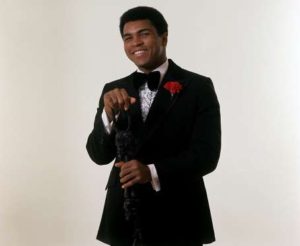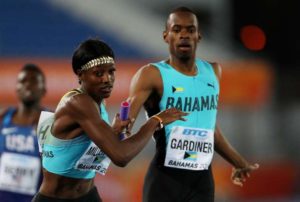
It well might be said in the next few days and weeks that Muhammad Ali was denied the greatest years of his boxing career because of his refusal in 1967 to be inducted into the U.S. Army.
There will be those who will bemoan the loss of those years because Ali had been stripped of his heavyweight boxing title because he chose to exercise his constitutional right to protest a government policy with which he disagreed.
My take on it, though, is that Ali’s refusal on religious grounds to take up arms against “them Viet Congs” and the punishment he endured by losing three-plus prime years of his boxing career only enhanced the legend that grew out of it all.
He would go on to become the “most recognized person in the world,” according to many surveys.
Muhammad Ali would stand for something far greater than just his blazing speed and power as, arguably, the greatest heavyweight boxer in history.
The Champ died Friday at age 74. Parkinson’s disease took him, finally. We knew this day would come, but oh man, this still hurts.
He was one of those sportsmen with whom I became enchanted as a youngster, dating back to the time before he won the heavyweight title — for the first of three times — in 1964. He boasted and bragged. He predicted the rounds his fights would end; the young man then known as Cassius Clay often would make good on his predictions.
Hey, the boxing world had never seen anything like him!
He beat the Big Old Bear, Sonny Liston. He then found Islam, changed his name eventually to Muhammad Ali. He kept fighting and winning.
Then came the day he was to be drafted into the Army. He couldn’t accept the order to report. It was a matter of religious belief. He made that statement that he didn’t “have anything against them Viet Congs.”
He was stripped of his title. Denied the right to make a living.
Ali didn’t go quietly. He became an iconic figure on college campuses, speaking out against the Vietnam War and against the racism that denied him his heavyweight title.
The U.S. Supreme Court would rule eventually in his favor, tossing out his banishment. Ali would return to the ring. He’d win some more. He lost The Fight of the Century to Joe Frazier, who then lost to George Foreman.
Then Ali showed the world how a “washed-up” fighter could regain the title. He knocked out Foreman in eight rounds a decade after winning the title the first time.
There would be more victories. Ali would lose his title once more, and then would regain it a third time.
Ali retired for good from boxing after getting thrashed by then-champ Larry Holmes and losing his final fight in 1981 to journeyman Trevor Berbick.
Then came the Parkinson’s diagnosis. Muhammad Ali would become a champion for another cause, becoming a spokesman for Parkinson’s awareness.
He kept fighting.
And who in this entire world could forget that electrifying moment at the 1996 Summer Olympics when The Champ stepped out of the shadows to light the torch in Atlanta? His hand was quivering, but he got the job done as the stadium crowd roared mightily. The swimmer, Janet Evans, who handed the torch to Ali said it was like “an earthquake.”
I will choose to remember Muhammad Ali as the vibrant young man who fought like hell with his fists, then fought even harder with his huge heart.
He wasn’t a perfect man. Ali merely was The Greatest.
Rest in peace, Champ. You earned it.





